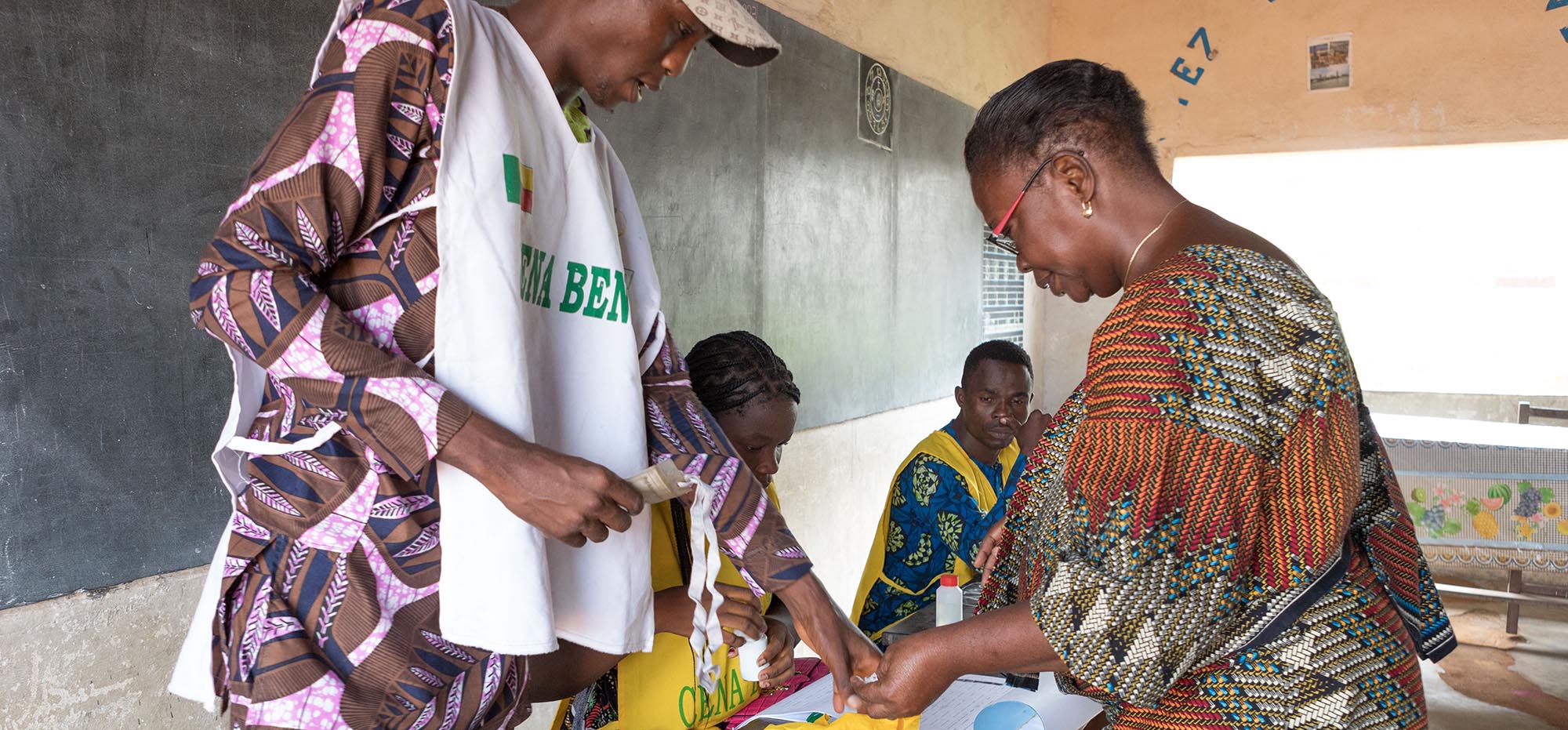
Although Benin’s thriving media landscape is made up of several media outlets, the civic space is shrinking under the pressures of restrictive legislation and political interference. Self-regulation is complicated, and journalists are facing the risk of self-censorship and poor working conditions that threaten the independence of the media.
In September 2024, Fondation Hirondelle launched a new project aimed at supporting the advocacy capabilities of Beninese civil society. This EU-funded project focuses on the broadcast of independent, responsible and inclusive news by placing Beninese citizens at the heart of public discourse. To achieve this goal, Fondation Hirondelle has developed key partnerships with FeRCAB (Fédération des Radios Communautaires et Assimilées du Bénin), already a partner in a 2020–2021 multi-country Covid-19 anti-disinformation project; and Ekôlab, a laboratory for quality journalism in West Africa that promotes rigorous and informative journalism.
Working closely with FeRCAB and Ekôlab, Fondation Hirondelle has set itself a twofold objective: firstly, to help local media work effectively with civil society organisations (CSOs) and report on the concerns of citizens; and secondly, to improve people’s access to and participation in local media content focused on local development issues. This content includes programmes on promoting a culture of gender equality; governance; the effects of climate change; and the environment.
Financial volume 2024
270 000 CHF
Funding
- European Union
- CFI via the French Development Agency
Key figures 2024
8 departments covered
24 journalists trained in fact-checking
18 partner radio stations
3 studies carried out in 2023–2024 (editorial, technical and management)
Local media selected over the course of the project are provided with support to produce on- and offline media content in Benin’s national languages and in French. Round tables, current affairs shows and public programmes are produced, bringing together diverse public discourse stakeholders including CSOs, experts and officials. These media outlets broadcast this content on the airwaves and on digital platforms (Facebook, WhatsApp, websites, etc.). Once a year, the radio stations vote for the year’s best content, which is then broadcast by all FeRCAB stations.
FeRCAB station employees receive training and coaching sessions on journalism techniques. More specific needs-based training is also offered to CSOs and women in the FeRCAB women’s network on subjects such as using digital technology; advocacy; communication techniques; local development; and gender issues.
Priorities
- Help local media to collaborate with CSOs
- Improve people’s access to and participation in media content
Activities
- Production of media content in collaboration with CSOs
- Training and coaching FeRCAB radio station teams
